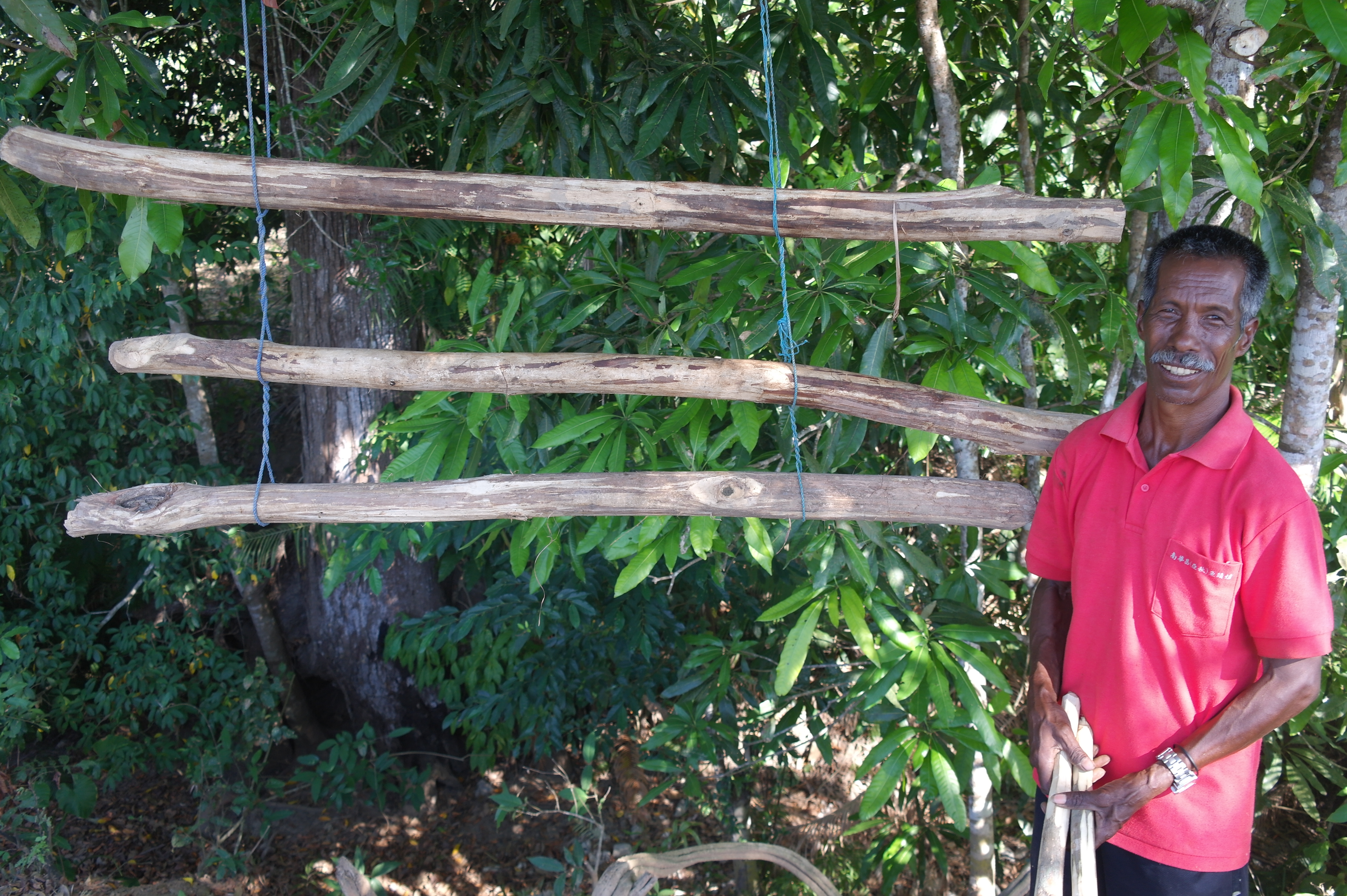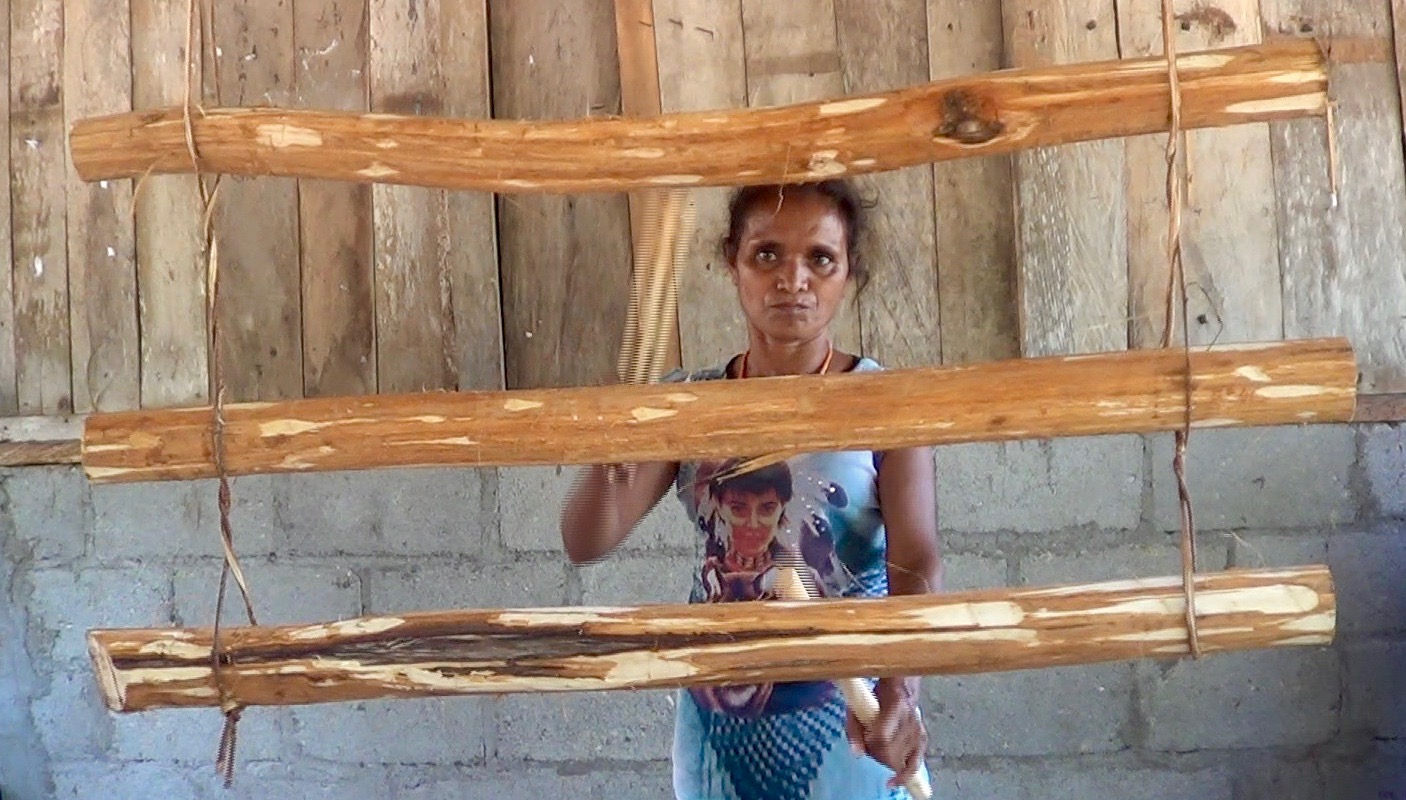Musical instruments: Log xylophone (kakal)
Kakal is a log xylophone made from the wood of the pokura tree found in the jungle of the Lautem district. The instrument - a set of three suspended cylindrical tubes - is played with sticks. The lowest pitch is at the top, and the highest at the bottom.
When played, the rhythm of the kakal is irregular, and often follows the inflections of sung vaihoho (traditional songs or sung poems). The vaihoho songs played on the kakal also imitate roosters, dogs and insects. Farmers in the fields play the kakal loudly, using the sound to scare away birds, monkeys or other animals from eating crops. Love songs are more often played softly, as single notes to call to ones' girlfriend or boyfriend. The instrument is also performed in accompaniment with vaihoho at weddings, funerals, harvest festivals and other ceremonial occasions.
The kakal is played by men and women, as shown in the following videos.
Photo: Pedro da Silva with the kakal he has made, in aldeia Malahara, sub-district Lospalos.
Photo: Josefina dos Santos playing the kakal in aledia Soikili, sub-district Lautem.
Can't find what you're looking for? Try viewing the site map.

